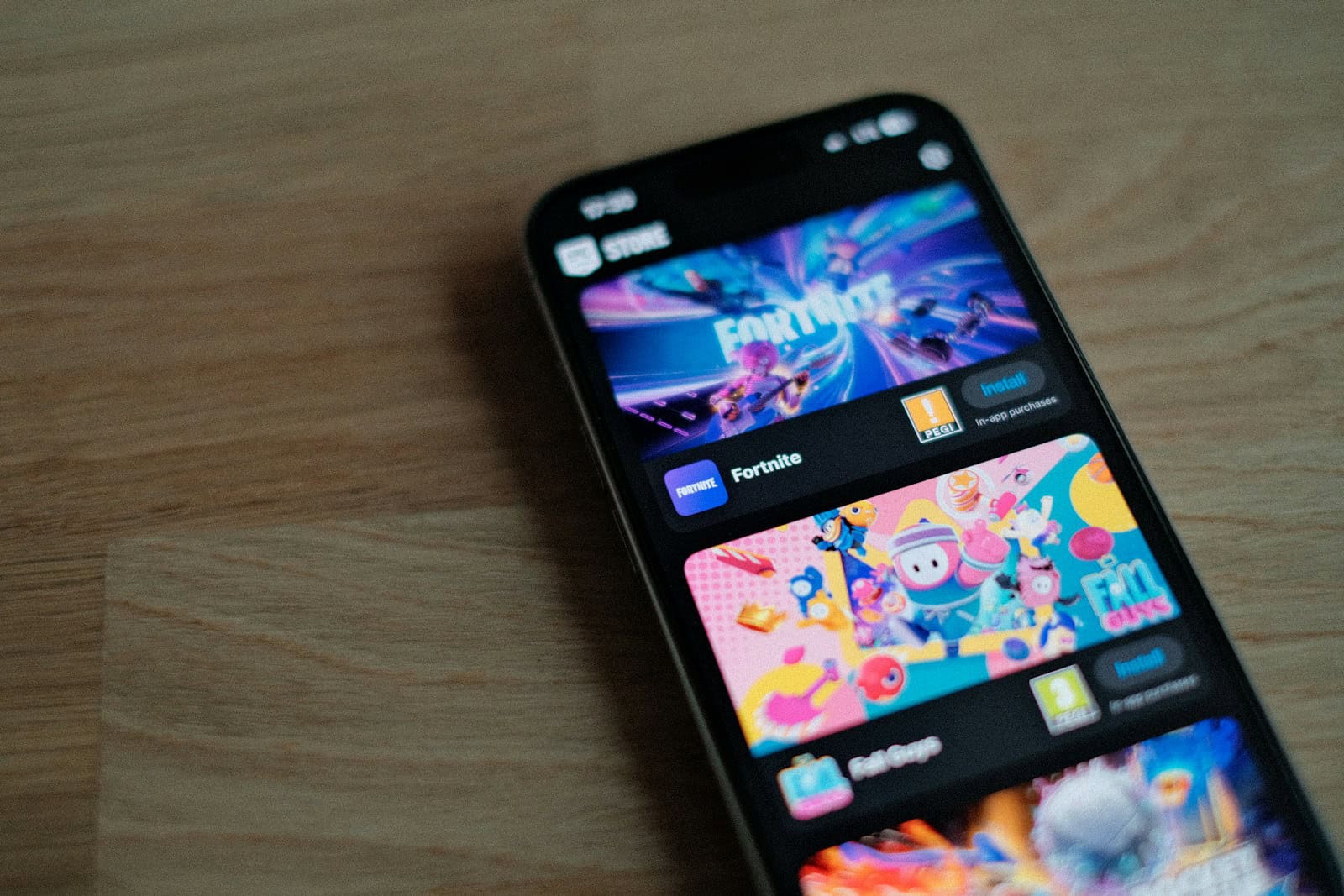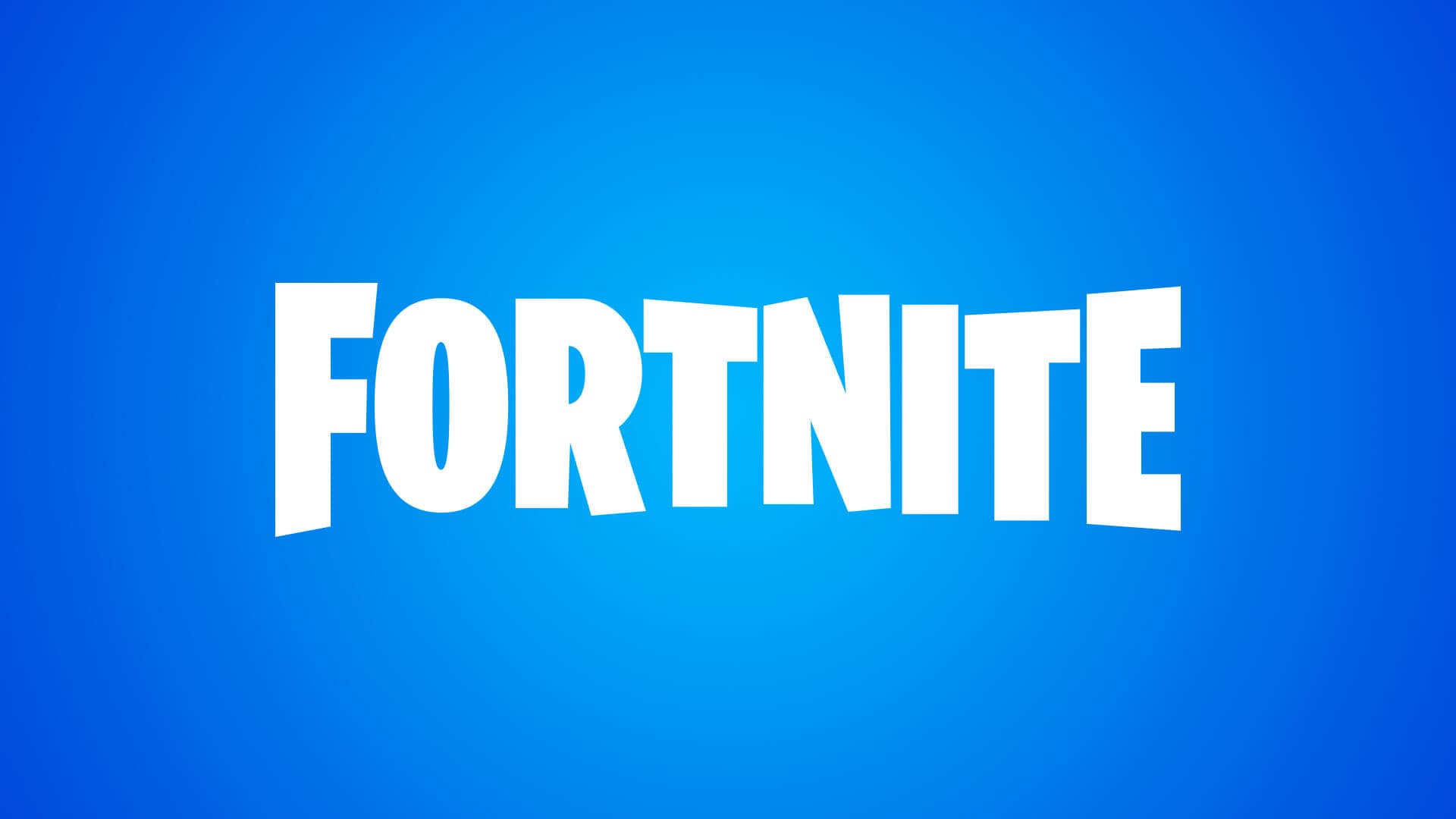After nearly five years of legal battles, regulatory scrutiny, and intense fan anticipation, Fortnite is officially returning to iPhones in the United States. Epic Games announced that the wildly popular battle royale game will be reinstated on the U.S. iOS App Store as early as next week—a direct result of a pivotal legal ruling that rebuked Apple’s restrictive App Store practices.

Fortnite Is Back on iPhones in the U.S.: What It Means and Why It Matters
A Court Ruling That Changed Everything
The breakthrough came when a U.S. federal judge found Apple in contempt of court for violating a 2021 injunction. The original court order barred Apple from preventing developers from informing users about alternate payment options outside its in-app purchase system. Apple not only continued restricting these practices but, according to the judge, did so in a manner that concealed intent. The violation is serious enough that it’s now been referred for possible criminal investigation.
This marks a significant shift in the app economy. The ruling reinforces the idea that Apple can no longer act as the sole gatekeeper of the iOS ecosystem—at least not without facing legal consequences.
Epic’s Response: “We’re Back”
Epic Games CEO Tim Sweeney wasted no time responding. He confirmed that Fortnite would be returning to the U.S. App Store “next week.” Even more notably, he extended a “peace proposal” to Apple: if Apple complies globally with the court’s demand to open up app payments and distribution, Epic will end its litigation worldwide and resume cooperation.
This isn’t just a return—it’s a potential turning point in how mobile platforms operate globally.
Perfect Timing: Fortnite’s Star Wars-Themed Season Launches May 2

Fortnite’s return to iPhones aligns with the highly anticipated launch of Chapter 6: Season 3, dubbed Galactic Battle. This Star Wars crossover event is one of the biggest in-game updates of 2025 and includes:
- New Map POIs: Resistance Base, First Order Base, Outpost Enclave, and Vader Samurai’s Solitude.
- Exclusive Skins: Including Poe Dameron, General Grievous, Emperor Palpatine, and a Wookiee Team Leader.
- Weapon and Vehicle Additions: Lightsabers return, and for a limited time, players can pilot X-Wings and TIE Fighters.
- Rumored Characters: Hints of Mace Windu, Darth Jar Jar, and others joining mid-season or in the Item Shop.
With such a major content update, Fortnite’s mobile relaunch is perfectly timed to ride the wave of renewed fan excitement.
Why Fortnite Was Banned in the First Place
Fortnite was pulled from the App Store in August 2020 after Epic added a direct payment system to its iOS app, bypassing Apple’s required 30% commission. Apple quickly removed Fortnite, sparking a legal war that challenged the very nature of how mobile platforms handle competition, payments, and developer freedom.
Epic vs. Apple: The Bigger Picture
The legal clash has been one of the most consequential in tech history. Epic’s argument was simple: Apple’s App Store is a monopoly. Though the court didn’t go so far as to label Apple a monopoly, it did rule against Apple’s anti-steering policies, which stifled open competition.
Apple tried to appeal—twice. But in January 2024, the U.S. Supreme Court declined to hear the case, letting the lower court’s ruling stand. The recent finding that Apple disobeyed that ruling opened the door for Epic—and Fortnite—to return.
What This Means for Players
- Fortnite will soon be available again in the U.S. App Store.
- Players can access all core modes: Battle Royale, Zero Build, LEGO Fortnite, and Rocket Racing.
- Mobile players in the U.S. will get the full native experience, not a streamed version or workarounds like GeForce NOW.
- Epic’s own app marketplace could expand beyond the EU, depending on Apple’s next move.
The Global Stakes
Previously, Fortnite returned to European iOS devices in August 2024 thanks to the EU’s Digital Markets Act, which forced Apple to open up its platforms to third-party app stores. If Apple accepts Epic’s global proposal, this could pave the way for similar freedom worldwide—not just for Fortnite, but for any developer frustrated with Apple’s control over distribution and payments.
Final Thoughts
This isn’t just a win for Fortnite fans—it’s a landmark moment in mobile tech. The return of Fortnite signals a wider reckoning for closed ecosystems and sets a precedent for fairer competition on mobile platforms. Whether you’re a gamer, developer, or policy watcher, all eyes are now on Apple’s next move.
Do you plan to jump back into Fortnite when it hits the App Store again?
Key Takeaways
- Court ruling allows Fortnite to come back to iPhones in the U.S.
- Epic Games plans to relaunch Fortnite in the App Store soon.
- The decision could impact how apps are managed on iPhone devices.
The Court Victory That Changed Everything
A United States district court ruled that Apple had to loosen its restrictions on the App Store and let app developers direct users to other payment systems. This decision came after Epic Games challenged Apple’s rules and won a major legal battle.
Summary of the Court Ruling
In April 2025, the U.S. District Court for the Northern District of California found that Apple violated a previous court order. The key issue was Apple’s control over app payments and its rule against developers steering users to alternative payment options. The court declared that Apple’s actions limited fair competition for app downloads and purchases.
The injunction issued by the court forced Apple to make significant changes to the way its App Store operates, especially regarding third-party purchases. As a result, Epic Games’ popular game Fortnite is set to return to iPhones in the U.S. For more details, refer to this report on the court order.
Role of Judge Yvonne Gonzalez Rogers
Judge Yvonne Gonzalez Rogers, who presided over the case, was direct in her criticism of Apple’s conduct. She cited “obvious cover-up” tactics and noted that the company willfully violated prior orders meant to increase competition. Her ruling signaled that courts expect tech giants to comply fully with antitrust instructions.
Judge Rogers has dealt with previous parts of this case, making her decisions highly influential. She made it clear that ignoring the court’s directions would have serious consequences for Apple. The judge’s approach helped shape the current antitrust landscape for digital marketplaces.
Implications for Antitrust and Competition
This legal battle marks a major turning point for antitrust action against large tech companies. By siding with Epic Games, the court challenged Apple’s long-standing control over its App Store and the 30% commission known as the “Apple tax.” This ruling may inspire more scrutiny of app stores and digital markets.
Developers can now point users to payment systems outside of Apple’s platform, which could lower costs for consumers and increase competition. The changes forced by the court set a new precedent for regulating digital marketplaces. For further insight into the impact on antitrust policy, see this analysis from The Verge.
Contempt and Litigation Developments
After reviewing Apple’s actions, the court found the company in contempt for not following the prior order. This was a serious finding, as being held in contempt of court can lead to stricter penalties and further legal battles. Judge Gonzalez Rogers highlighted Apple’s delays and attempts to avoid compliance.
Although these actions were civil contempt rather than criminal contempt, the court’s stern warnings suggest that Apple faces closer oversight in future litigation. The continued dispute could climb to higher courts, possibly reaching the Supreme Court if appeals continue. Epic’s persistence in legal action, matched with the court’s enforcement, expectedly shapes the path for future antitrust cases in the tech sector. For more on the contempt finding, read this Reuters article.
Epic Games and Apple: The Battle for iPhone Access
Epic Games and Apple’s long legal standoff shaped how digital games and apps are sold on iPhones. Their conflict changed business for developers and opened new debates about fees, control, and user choice.
Background of the Dispute
The dispute began when Epic Games tried to avoid Apple’s payment system in Fortnite by offering its own in-app purchases at lower prices. On August 13, 2020, this led Apple to remove Fortnite from the App Store. The resulting lawsuit challenged Apple’s rule that all apps use its payment system and give Apple a 30% cut.
This legal fight focused attention on Apple’s control of its ecosystem. It highlighted the rules that affect millions of developers who rely on the App Store to reach iPhone users. The case also brought up questions about fairness in the digital marketplace.
Throughout the battle, several business documents and court findings became public. These documents gave rare insight into the negotiations and profit structures on both sides. The conflict received widespread coverage due to the high stakes for both companies.
Epic Games’ Strategy and Leadership
Epic Games, led by CEO Tim Sweeney, planned the App Store challenge for months. Sweeney publicly criticized Apple’s rules, saying they limit choice and hurt both developers and users. He worked with his team to provoke a legal clash, hoping courts would force Apple to change.
Epic’s main argument was about competition. The company claimed Apple’s App Store setup hurts developers and makes apps more expensive for users. Sweeney’s leadership style is marked by direct action; he even emailed Apple’s Tim Cook and Phil Schiller to demand changes before the lawsuit.
Epic used media, open letters, and social media to build public support. They positioned Fortnite as a symbol for developers’ freedom. This approach won backing from many smaller developers that faced similar challenges.
Apple’s App Store Policies and Defenses
Apple defended its 30% fee by saying it pays for security, user privacy, and the tools needed for developers to succeed. Apple’s executive team, including Phil Schiller and finance chief Luca Maestri, explained these points during the legal hearings and in business documents.
Apple argued the App Store is not a monopoly because users can choose Android or other platforms. They also pointed out the value of their strict review processes in keeping users safe from scams and malware. Apple’s management insisted these policies protect their brand and the user experience.
However, Apple’s stance drew criticism from both developers and regulators. The company’s position in this case became a starting point for wider debates on tech power and fairness.
Business Impact on Developers and Users
The outcome of the case brought major changes for developers. With Fortnite returning to the US App Store following a court victory, developers may have more freedom over how they charge users. This opens up the possibility for new payment options and reduced fees for in-app purchases. For more details on this ruling, see Fortnite’s return to the App Store.
Users now have more ways to pay for digital goods and potentially lower prices. The court decision also creates new standards for how app stores operate, affecting millions who use iPhones and iPads. Developers hope for a fairer market, while analysts continue to watch for more policy changes.
Epic’s victory signals a shift in how big tech companies manage their platforms. It shows the real effects of business disputes on everyday app usage and the ways digital companies interact with each other and their customers.
How Fortnite Is Returning to iPhones in the U.S.
Fortnite is coming back to iPhones after a long legal fight. This change follows a major court decision that impacts the way apps are offered and how users pay for digital items on iOS devices.
Technical Steps for Reinstatement
Epic Games will resubmit a version of Fortnite to the Apple App Store in the United States. This is possible because a court decision now prevents Apple from blocking Epic over past rule violations.
To get Fortnite running again on iPhones, developers at Epic are updating the game to meet current iOS standards. This involves making sure the app meets technical and security requirements set by Apple.
Apple reviews all updates before allowing them into the App Store. Once Fortnite passes these reviews, it will be available for download for U.S. users. Players who had Fortnite installed before the ban should also be able to update it to the latest version.
Changes to App Store Policies
The court ruled that Apple cannot stop apps from linking users to payment options outside of Apple’s own system. This means companies like Epic can provide their own payment solutions within their iOS apps.
Epic is now allowed to return Fortnite to the App Store if it agrees to follow new guidelines and legal rules. The change is part of a recent ruling that limits Apple’s control over how payments are handled in apps.
Apple still reviews and approves all apps for quality and safety, but now developers have more choices about how they handle payments and purchases inside their apps.
Payment Systems and In-App Digital Transactions
Before this court decision, Apple required all in-app digital transactions to go through its payment system. Apple charged a commission, usually up to 30%, for each purchase made inside the App Store.
Now, Fortnite can offer its own in-app payment options separate from Apple’s system. Epic will be able to avoid Apple’s high commissions by directing users to pay through its own platform instead.
Players will see new payment choices inside the app when buying things like digital skins or currency. This approach lowers costs for Epic and could mean better deals for users, since payments are no longer limited to Apple’s fees. For more details on this change, see the news about Fortnite’s return.
Broader Industry Implications and Ongoing Challenges
The legal fight between Epic Games and Apple has not only brought Fortnite back to iPhones, but also pushed the tech industry to reevaluate how large platforms control their app stores. Developers and regulators are watching closely as more court decisions and new rules may shape the future of app sales and payments.
Monopoly Accusations and Ongoing Competition Concerns
Apple has often faced claims of running a monopoly over its App Store. The core complaint centers on Apple forcing developers to use its payment system, which gives Apple a large cut of sales. After the court case, some restrictions on in-app purchases are being challenged.
Epic Games has pushed for more freedom, claiming Apple’s rules are anticompetitive and limit choice for consumers and developers. The recent court decision found that Apple ignored a standing court order by placing limits on how apps could direct users to other payment options. This has fueled debate about whether Apple’s control is fair or stifles competition.
Large developers, smaller app makers, and other tech companies are now taking more interest in fighting back against exclusive policies. The outcome of this case may push more antitrust investigations and greater demands for flexibility in app store rules.
Impact on EU Regulations and Global Market
Europe has stronger digital regulation than the U.S. Laws like the Digital Markets Act (DMA) require major platforms to open up and allow more fair play. Apple has faced new pressure to adjust its payment policies in Europe, especially after the Fortnite case.
The court fight has given energy to regulators in the EU, who have demanded that Apple allow third-party payment links in apps. This victory for Epic Games could support arguments in other global markets where regulators want less control by big tech. Recent changes in Europe may force Apple to rethink how its App Store works both there and in other parts of the world.
Countries outside the EU are paying close attention. Future antitrust rules in the U.S., Asia, and other regions may follow the lead set by European regulators, using the Fortnite-Apple conflict as a case study in fair competition.
Future Peace Proposals and Court Injunctions
Recent court rulings have not ended the dispute. The court’s latest injunctions have required Apple to change how it runs its App Store, but there are ongoing talks and legal steps that may still arise.
Epic Games has proposed long-term “peace proposals” that would let developers use their own payment systems and open up the market. However, Apple has pushed back, arguing that it needs controls for privacy, security, and profit. Both sides want to set the rules, and further court actions are possible.
For now, Fortnite’s return to iPhones is a step forward, but Apple and Epic are likely to keep fighting over how apps are managed and who controls digital marketplaces. Industry watchers expect more lawsuits and proposals in the coming months.
Frequently Asked Questions
After a major court decision, Fortnite is returning to iPhones in the U.S. iPhone users have new ways to access and install the game, and there are changes to how apps can be downloaded from outside the official App Store.
What steps should I follow to install Fortnite on my iPhone post-courthouse victory?
First, users should look for updates from Epic Games on when Fortnite will be available for iOS. In most cases, downloading will involve visiting the App Store or the planned Epic Games Store app.
Once the app is listed, it can be installed as with any other iOS app, by tapping “Get” or “Install.”
Is the process to download Fortnite from the Epic Games Store on iPhones different in the UK and the US?
There are differences by region. In the European Union, Fortnite has already returned to iOS through Epic’s own mobile app store.
In the U.S., Epic plans to launch a similar store, but it has not yet gone live. U.S. users should watch for announcements about its official release.
Where can users find the official Fortnite mobile application for iOS?
Once available, the official Fortnite app will be listed either on the Apple App Store or through the new Epic Games Store app when it launches in the U.S. Updates can also be found on Epic Games’ official website, which will provide direct links.
Can iPhone users freely download and install apps from Epic Games after the court ruling?
The court decision means Apple can’t block outside payment options, and Epic can return to the App Store. However, U.S. iPhone users must still wait for the Epic Games Store app to launch for iOS.
Direct downloads without the App Store are still limited, so users should always use approved channels for safety.
Are there any specific settings iPhone users need to adjust to allow the installation of Fortnite?
iPhone users do not usually need to change settings if downloading from the App Store. If installing through the Epic Games Store app, Apple may require the user to authorize the installation.
Instructions will be provided when the store launches, so it is important to follow on-screen directions closely.
What impacts does the court victory have on the accessibility of Epic Games titles on Apple devices?
The court victory opens up new options for Epic Games titles to appear on Apple devices, giving users more ways to access and purchase content. Apple must allow apps that use outside payment options.
More Epic Games apps may become available in the U.S. once the Epic Games Store is launched on iOS.







